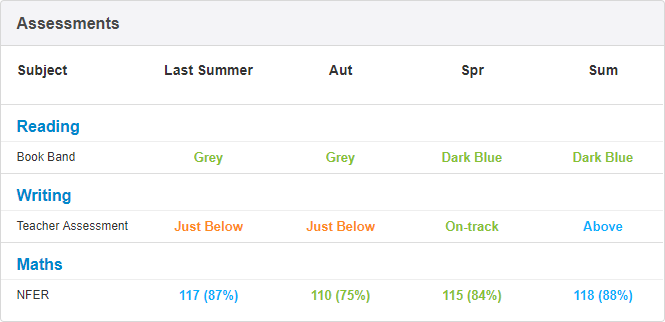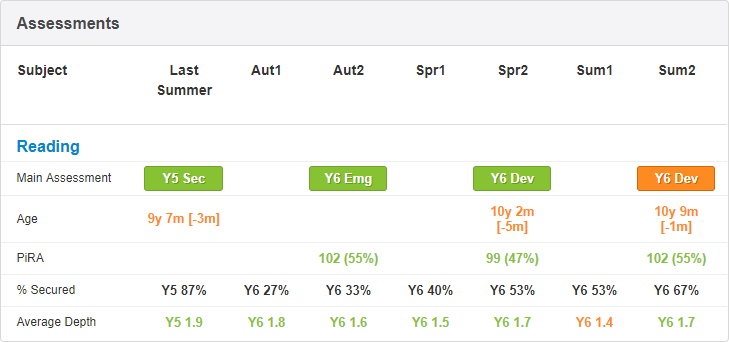Insight 101: Summative Assessment
Summative assessments are the judgements made at the end of a teaching period - usually a half-term, term, year or key stage - to evaluate a pupil's learning against benchmarks. Like formative assessments, these can be used to feed back to pupils and parents and to inform planning, but also allow school leaders to do cohort-level performance analysis.
Nationally standardised summative assessments used for accountability are prescribed, but schools now have the freedom to determine their own policies for in-school summative assessment. This means you're free to implement any approach which effectively monitors and supports your pupils' learning.
An Introduction to Summative Assessment in Insight
Insight is designed to be as flexible as possible, to put you in control of your summative assessment. Its flexibility comes from giving you the ability to determine your own subjects, assessment names and 'mark schemes'.
As far as possible, we aim to enable you to assess whatever is right for your school, at whatever frequency. If you're tracking Maths through NFER tests, Reading using Book Bands and Writing via your own system of teacher assessment, Insight can support you:

If you're using Insight's objective grids for your formative assessment, Insight can show any summary data points alongside other summative assessments for each term. This provides a view into how pupils are performing at the objective level, which can help inform and contextualise your summative assessments, as well as highlighting possible problems.
Here's an example of how Reading might look in a different school:

Mark Schemes
A number of preset mark schemes are available which allow you to enter common types of assessment, including SATs, Phonics outcomes and scores, standardised scores, ages, percentages, EYFS Profile results, and so on.
Most of these can be customised to suit your school. For example, you might be using the Development Matters mark scheme to record age band judgements at EYFS, but want different terminology, or for the assessments to be evaluated in a different way.
We can also add any number of completely custom mark schemes to enable you to record other types of judgement you want to record, usually very quickly.
Teacher Assessments
Your school will usually need a custom mark scheme adding to let you capture your teacher assessments of pupils' attainment.
If you're just getting started with Insight and haven't told us about your school's assessment approach yet, you'll see a default mark scheme called Teacher Judgements, which allows you to enter the judgements Below, Just Below, On-track and Gtr. Depth.
Some schools continue to use this simple, point-in-time style assessment going forward, others make small adjustments to the wording. Still others choose something completely different, such as a linear Steps approach.
The key thing to remember is that you aren't restricted to any "Insight approach". Insight is designed to be collaborative, so as your assessment policy grows and changes, we'll work with you to ensure that Insight grows and changes with you.
A Note on Determining your Assessment Policy
Many schools using Insight have developed their own frameworks for assessing without levels, and where possible we encourage schools to follow the advice given by the Commission on Assessment without Levels:
When considering how to collect and report summative assessment information, the Commission recommends schools ask themselves what uses the assessments are intended to support, what the quality of the assessment information will be, how much time it would take teachers to record the information, and how frequently it is appropriate to collect and report it… Schools should develop their approach to assessment before considering external assessment systems in order that products can be evaluated according to how they fit with the school’s aims, assessment policy and curriculum.Final report of the Commission on Assessment without Levels (p.7; emphasis ours)
That said, if you're one of the many schools still looking for guidance in this area (or just some reassurance that you're on the right track!) we're always happy to talk about approaches we've seen; what works and what to watch out for; what your obligations are in terms of reporting to authorities; how to talk about progress in a world without levels; or anything else that's on your mind.
Further Reading
- For detailed guidance on entering summative assessments, see Entering Teacher Assessments, Tests and Targets
- For details on specific mark schemes, see the Summative Assessment category

